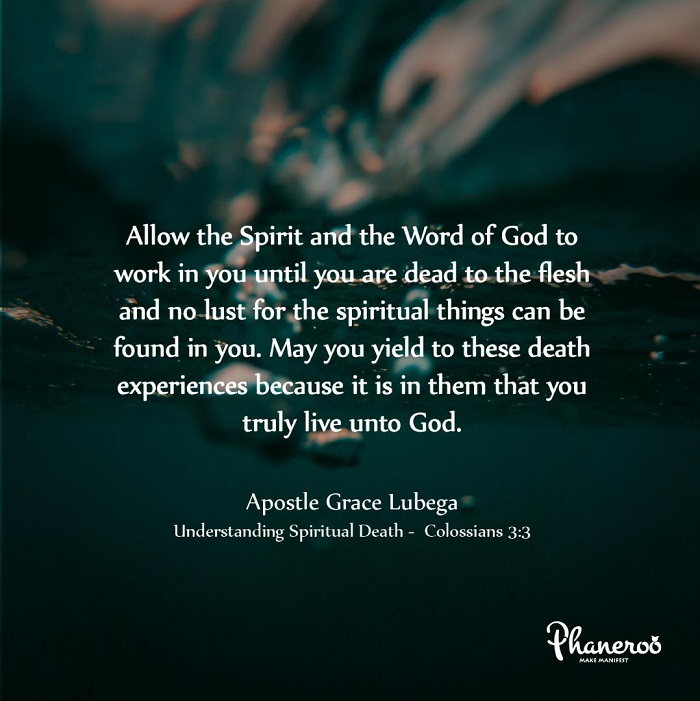In the realm of Bahá’í teachings, the concept of the soul’s death transcends the mere physical demise; it signifies a profound transformation in one’s spiritual journey. This reflection on the awareness of the soul’s death encourages a reassessment of our existential paradigms, provoking a deep inquiry into the nature of our spiritual essence, the eternal journey of the soul, and the implications of these teachings for contemporary society. By cultivating an understanding of spiritual death, one can forge a path toward spiritual awakening and enlightenment, ultimately shifting one’s perspective on life and existence.
The notion of the soul’s journey is foundational in Bahá’í theology. According to Bahá’í beliefs, the soul is inherently immortal, existing beyond the constraints of physicality. This understanding invites individuals to contemplate life’s purpose and the relationship between the material and spiritual realms. Recognizing that our earthly existence is transient compels an appreciation for the eternal nature of the soul, fostering a desire for spiritual enlightenment and growth. Essential to this process is the realization that each physical death is a passage to a new plane of existence, rather than an end, thus reshaping our attitudes towards mortality.
In understanding the soul’s death, it is pivotal to examine the implications of detachment from the material world. The teachings assert that material possessions, while significant, possess no lasting value in the grand tapestry of soul existence. This detachment cultivates not only a sense of liberation from worldly attachments but also an enhanced focus on spiritual development. The recognition that possessions and accolades are ephemeral encourages individuals to invest in personal growth and community service, cultivating virtues such as compassion, kindness, and integrity—qualities of the soul that endure beyond this life.
Adopting a perspective that embraces spiritual death invites individuals to confront the idea of transformation. In essence, spiritual death is not synonymous with despair; rather, it is an invitation to shed the limitations of past identities and emerge anew. This transformative process is foundational in cultivating a deeper understanding of oneself, one’s values, and one’s role within the greater fabric of humanity. Each moment is an opportunity for rebirth, wherein individuals can reassess their values, motivations, and aspirations. Understanding spiritual death, therefore, becomes a catalyst for introspection, leading to profound insights about the nature of the self and its mission.
A significant promise embedded within the Bahá’í teachings is the potential for unity and interconnectedness that emerges from this awareness. The acknowledgement of the soul’s death reminds us of the transient nature of life, fostering empathy and compassion for others who share in this universal experience. Such an understanding encourages spiritual discourse, facilitating connections amongst individuals who strive toward similar ideals. In this way, the awareness of the soul’s journey fosters an expansive community grounded in mutual support and collective spiritual progression.
The teachings further elucidate that the ‘spiritual death’ serves a dual purpose—it is not merely a personal experience; it equally extends to the collective spirit of humanity. As individual souls awaken to their divine potential, the collective consciousness evolves. This collective spiritual awakening underscores the transformative power of community, where diverse individuals converge to promote and practice the principles of love, justice, and equality. Through this lens, the awareness of the soul’s death is thus a unifying force, dismantling barriers erected by prejudice and inequality.
In grappling with these profound teaching, individuals are encouraged to ponder the implications of their own lives. The contemplation of one’s mortality, when viewed through the prism of spiritual death, shifts focus from fear of the unknown to a pursuit of spiritual enlightenment. One may ask, how does this understanding manifest in daily actions? What virtues must be nurtured to align oneself with the eternal nature of the soul? Such inquiries inspire a deeper reflection on how to infuse daily existence with purpose; rather than succumbing to the vicissitudes of life, one is led to forge resilience and integrity amid challenges.
Moreover, this awareness impels individuals to cultivate a spirit of service, recognizing that serving others is an integral part of the soul’s evolution. Engaging in altruistic acts transforms the understanding of one’s purpose and enhances the overall experience of life. As individuals contribute positively to society, they not only illuminate their own path but also foster an environment conducive to the flourishing of others. This reciprocity enriches the collective soul, ultimately leading to an elevated state of existence—a state where the divine attributes are reflected in human actions.
As individuals delve deeper into the implications of spiritual death, they may also discover a sense of liberation. The fear associated with mortality diminishes as one learns to embrace the ephemeral nature of existence. The teachings encourage a celebration of life, urging individuals to seize every moment as a precious opportunity for spiritual engagement and connection with the divine. The very awareness of the soul’s journey invites a proactive approach to life, leading individuals to cultivate gratitude and mindfulness—qualities essential for living a fulfilled and meaningful life.
In conclusion, the Bahá’í perspective on the awareness of the soul’s death transcends the confines of a mere theological discourse. It permeates every aspect of life, urging an understanding that death is not an end but a significant transition within an eternal journey. By shifting perspectives on mortality and embracing the teachings surrounding spiritual death, individuals are called to foster a deeper connection with themselves, their communities, and humanity at large. In so doing, they embark on a transformative journey towards spiritual awakening, enriching both their lives and the lives of others in the process. The embrace of these teachings is a clarion call to engage deeply with the essence of one’s existence, ultimately leading to a more harmonious and spiritually attuned life.
